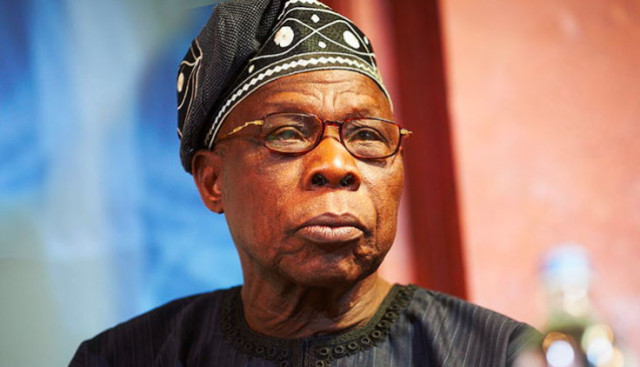NIGERIA —Former President Olusegun Obasanjo, has tasked the leadership of the Independent National Electoral commission (INEC) at all levels with electoral integrity.
He also urged Nigerians to ensure that the INEC chairperson and his or her staff were thoroughly vetted.
Obasanjo spoke while delivering his keynote address at the Chinua Achebe Leadership Forum, Yale University, New Haven Connecticut, USA.
Speaking on the theme: “Leadership Failure and State Capture in Nigeria”, Obasanjo affirmed that electoral integrity was at stake.
Also, he alleged that the Nigerian judiciary has been heavily compromised by politicians.
Obasanjo said, “As a matter of urgency, we must make sure the INEC chairperson and his or her staff are thoroughly vetted. The vetting exercise should yield dispassionate, non-partisan, actors with impeccable reputations.
“Nigeria must ensure the appointment of new credible INEC leadership at the federal, state, local government and municipal to prevent undesirable political influence and corruption, and re-establish trust in the electoral systems by its citizens.
“The INEC chairperson must not only be absolutely above board, he must also be transparently independent and incorruptible."
Speaking on the state of economy, the ex-president said Nigerian economy expressed a boost due to the quality of persons in government.
He said, “Let us not fool ourselves, there is a lot to be concerned about Nigeria. For one, Nigeria’s GDP has declined from $510 billion – after it was rebased in July, 2014, by then Finance Minister, Ngozi Okonjo-Iweala and colleagues – to the recent revision downwards by the IMF to $199 billion today.
“By the end of my tenure in 2007, the country’s average GDP growth over my eight years in office was 6.59 per cent (reaching 15.3 per cent in 2002) – one of the highest in the world.
“This increase was attributable to the quality of the leaders we had in our government – the eminent, late Bola Ige, General TY Danjuma, Adamu Ciroma, Sule Lamido, Mohammed Arzika, Liyel Imoke, Jerry Gana, Kanu Agabi, the aforementioned Ngozi Okonjo-Iweala, and several others who came on board in my second term.
“One of the stars of that cabinet, Mrs Oby Ezekwesili, former Minister of Solid Minerals and later Education of Nigeria is also here today. Other reasons for the country’s robust growth at the time can be attributable to reforms we instituted, especially in the private sector and service delivery,” he added.
He stressed that Nigeria as a nation must ensure the prevention of electoral interference at every level, calling for the intensification of activities to prepare and secure the voting infrastructure.
“Prior to elections, we should have a transparent exercise (witnessed by international observers) where so called ‘penetration testing of the election system and infrastructure’ is conducted for all to witness and verify.
“Nigeria must ensure the physical security of the commissions and voters. Our security apparatus must be professionally trained to protect our citizens during elections not to be participants in electoral malfeasance.
“INEC must ensure that it institutes ballot security to prevent tinkering or unauthorised access – manually or by cybercriminals. Ballot security also means the secure storage and transport of ballots to collation centres to prevent any form of interference,” he emphasised.
He added that Nigeria must put in place post-election audits and transparent processes – clear documentation and paths for meticulous and free and fair voting, and a credible electoral system – that builds trust and comfort for all stakeholders and voters.
“Politicians corruptly getting themselves declared as winner in an election where votes do not matter and asking winner declared loser to go to court where justice cannot be assured is the easiest and best way to kill electoral democracy,”Obasanjo affirmed.
Describing Nigeria’s situation, Obasanjo argued that the more the immorality and corruption of a nation, the more the nation sinks into chaos, insecurity, conflict, discord, division, disunity, depression, youth restiveness, confusion, violence, and underdevelopment.




















